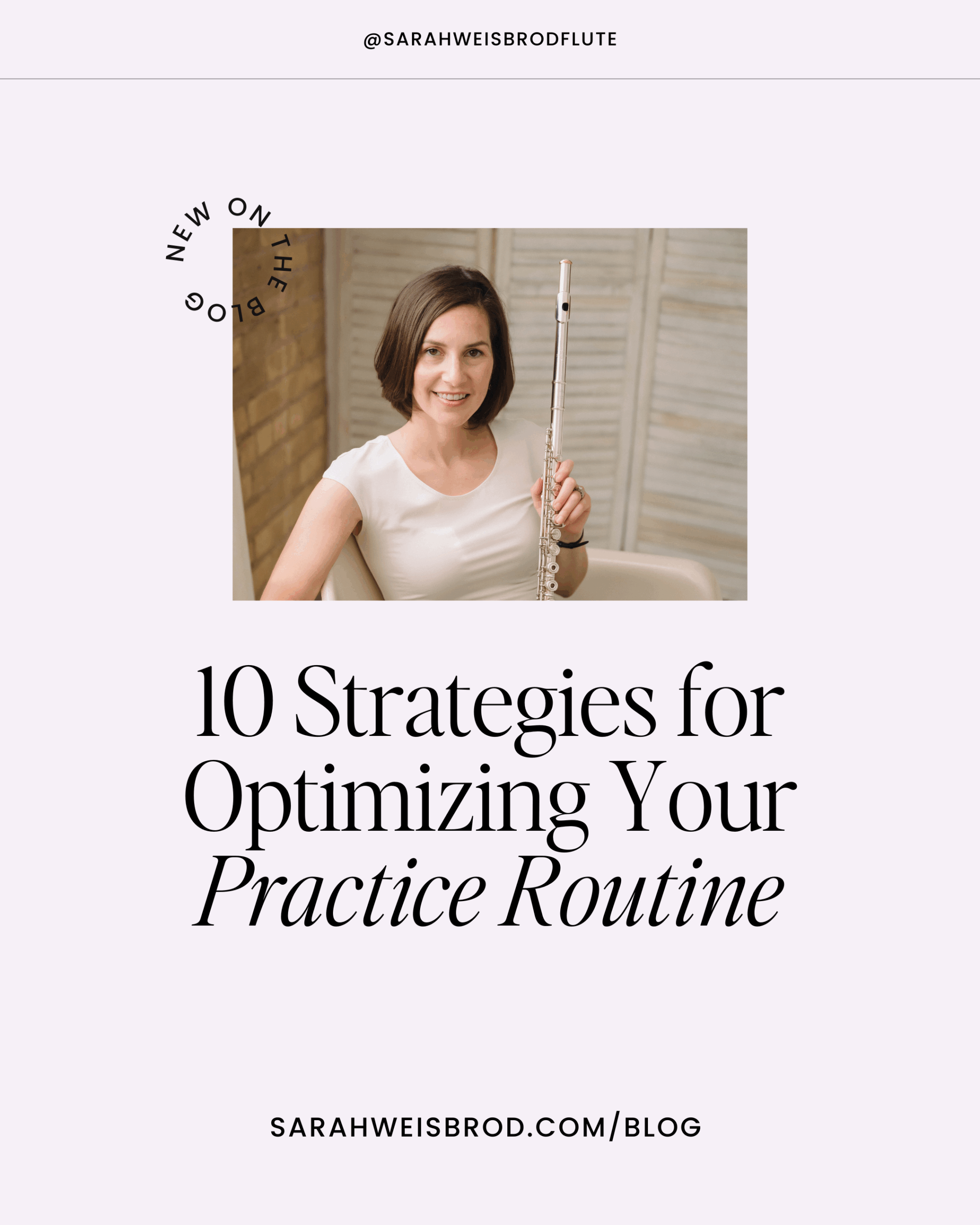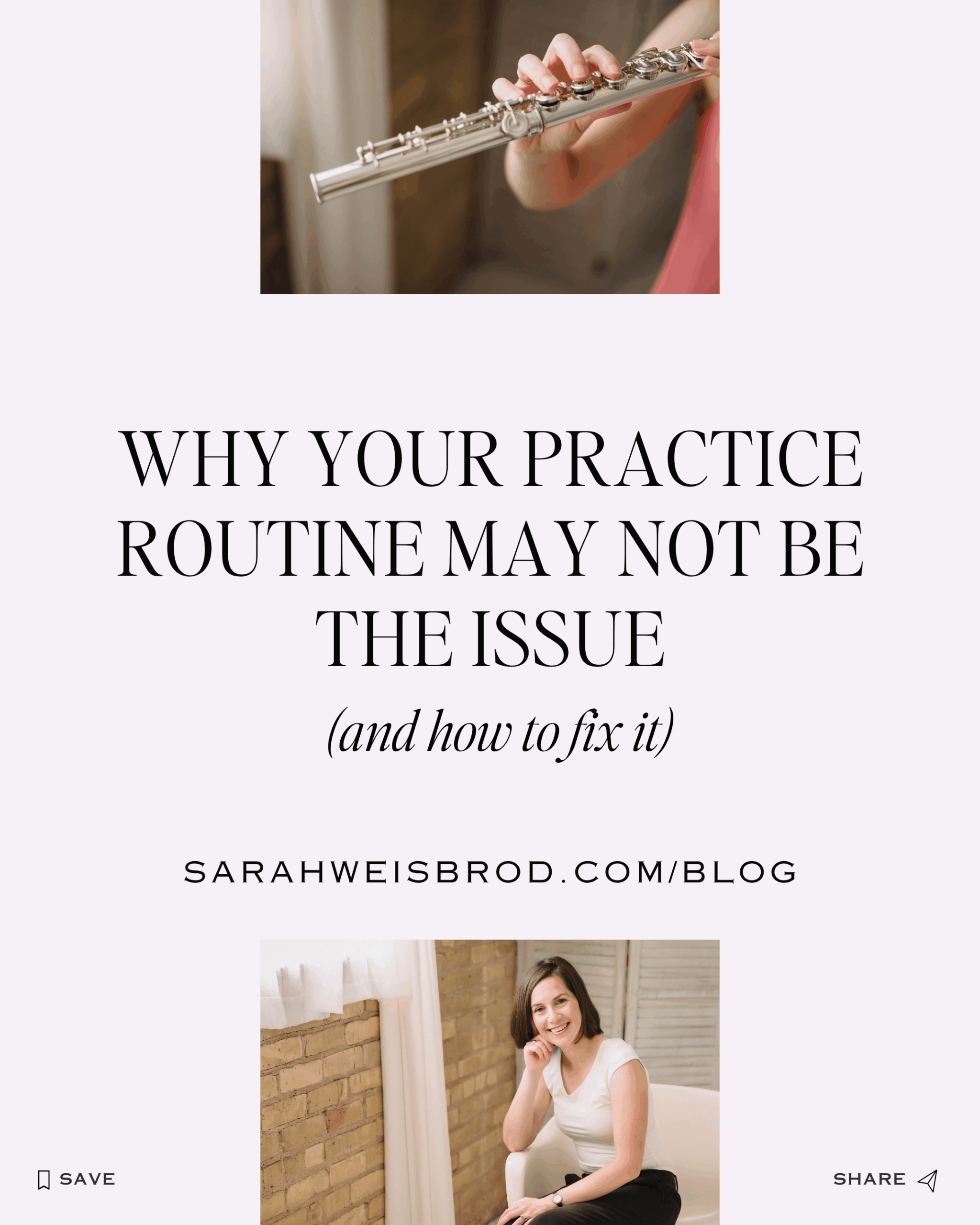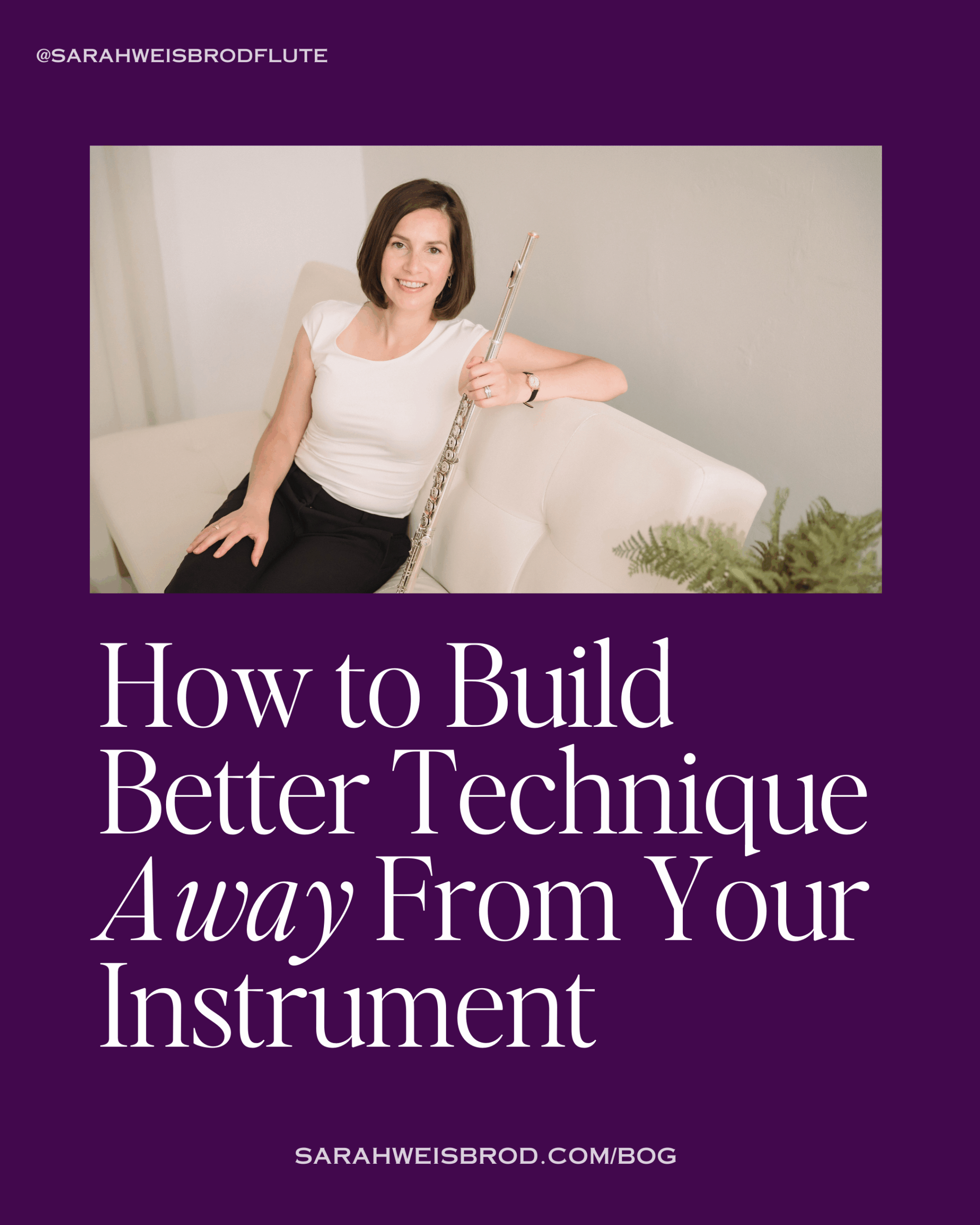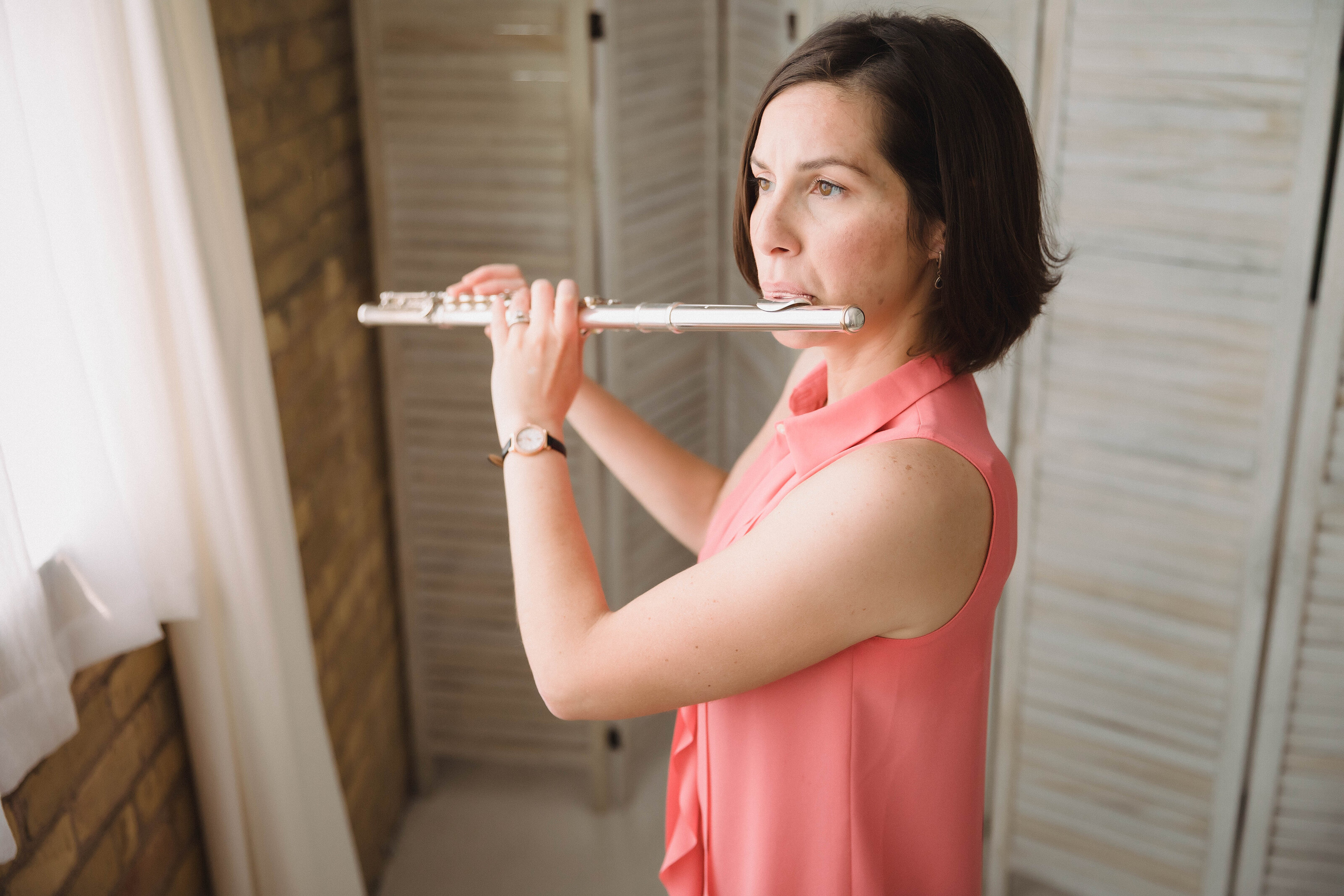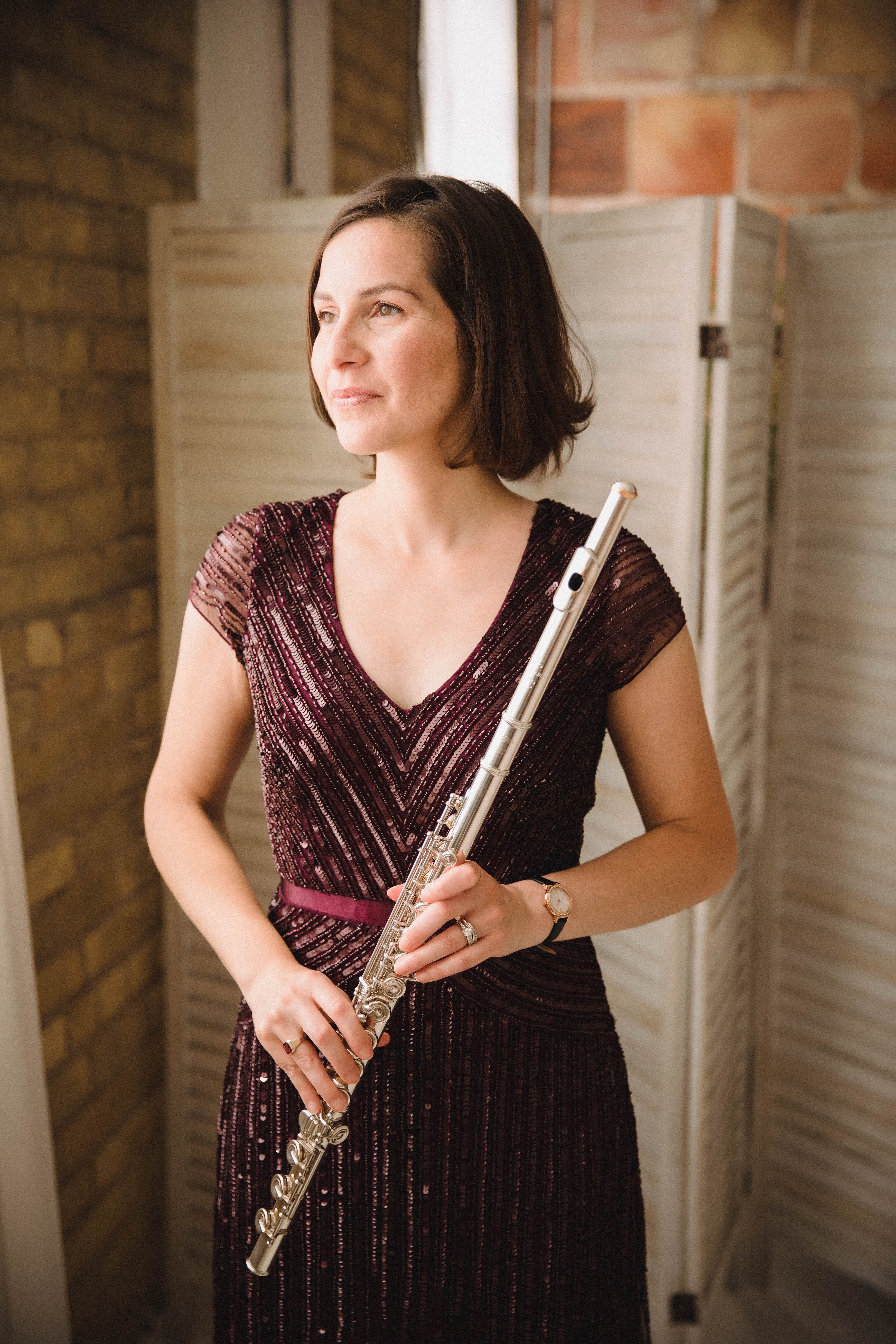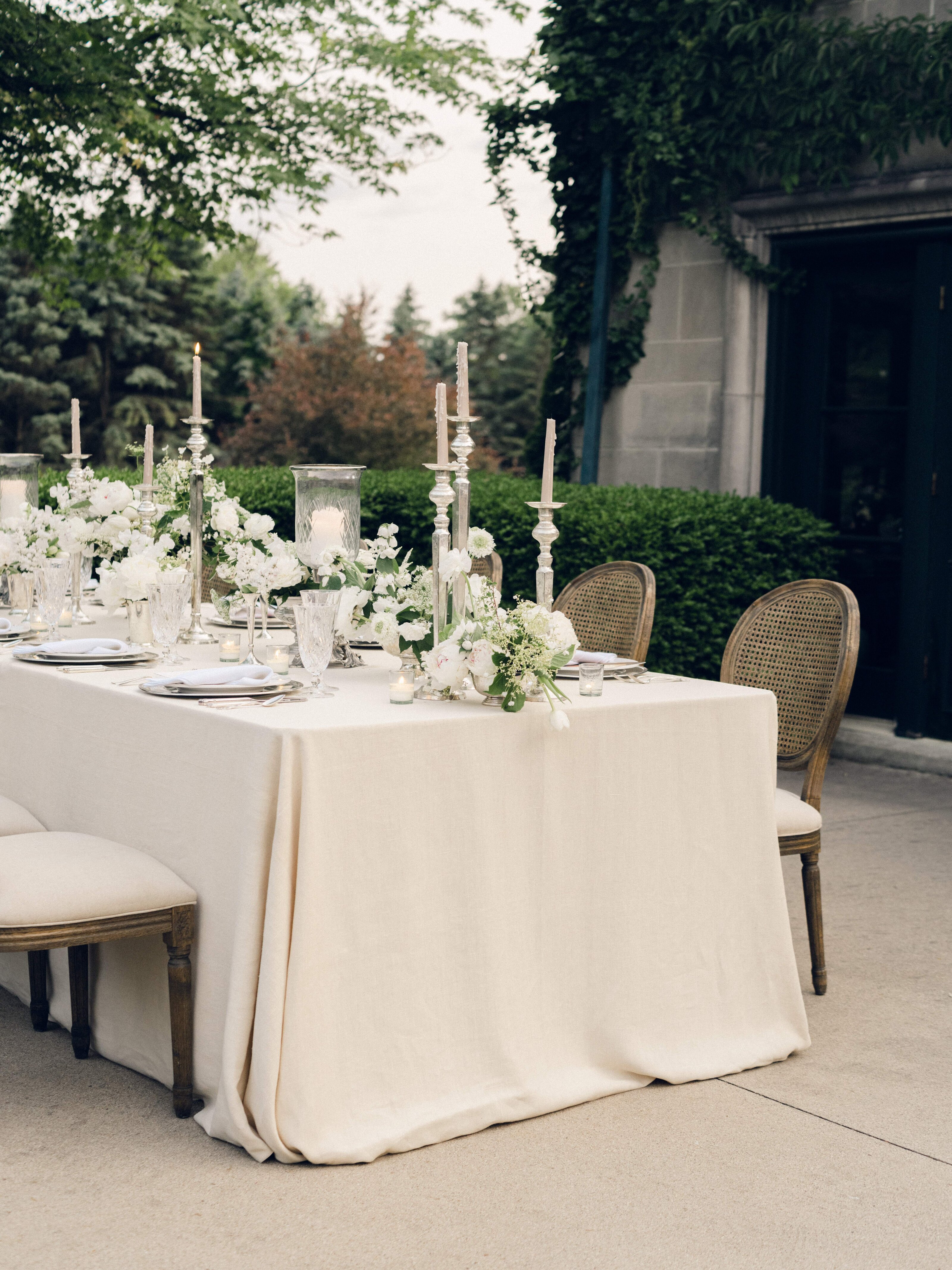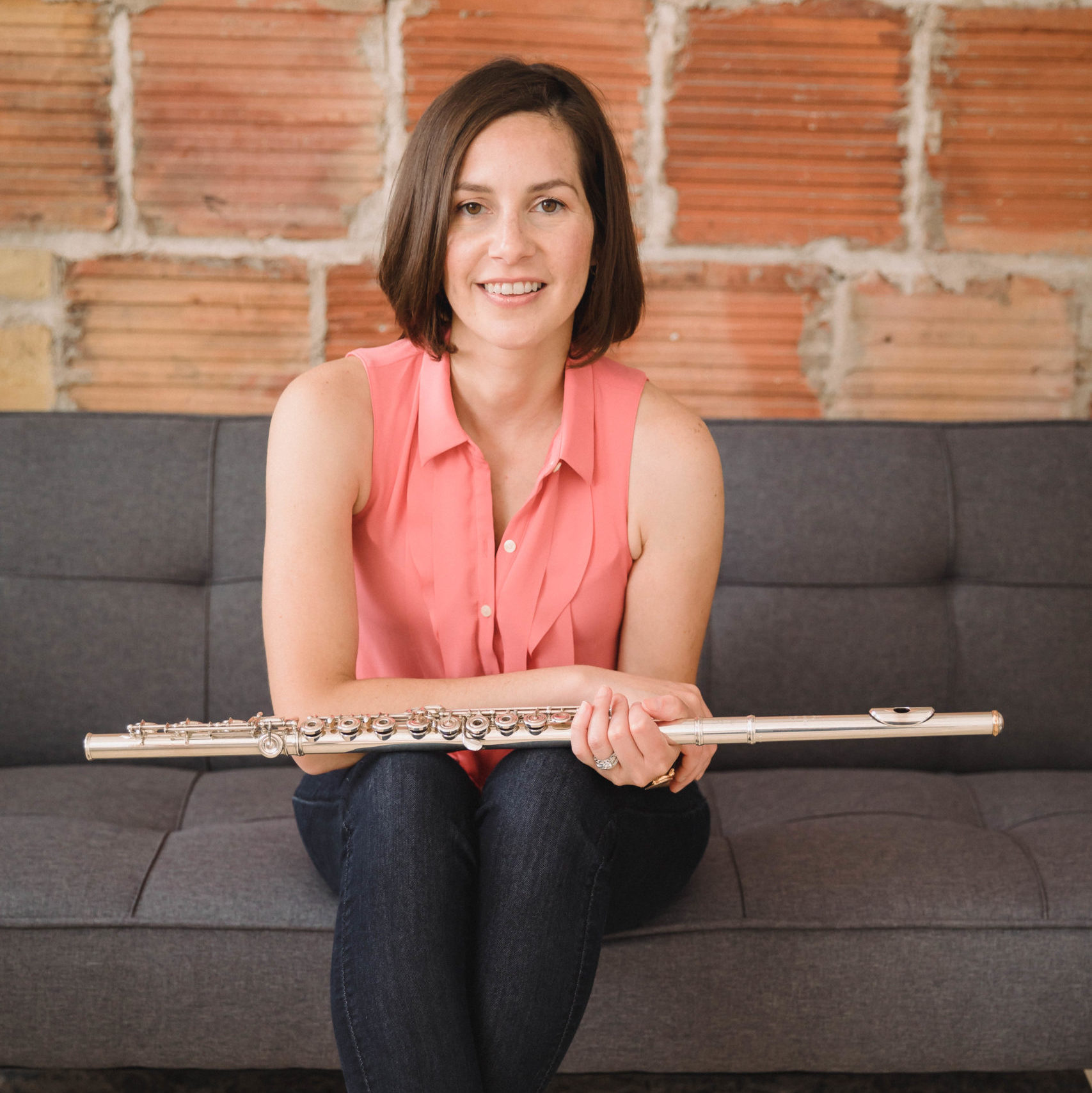

10 Essential Tips Every Musician Needs to Know When Auditioning for Music Schools
Whether you’re a high school senior auditioning for your first music program or a Master’s student applying for your DMA, I want to share my key tips for navigating a successful and stress-free on-campus audition day.
If you’re like me, you don’t like surprises. And, there’s nothing worse than preparing for a big audition and running into a ton of roadblocks before you play.
That’s why I like to be prepared …
so prepared that I planned my wedding day by the minute, including the photoshoot. It drove my husband and friends nuts, but you know what? We finished photos early and had enough time for a quick snack before the ceremony.
When you audition at a college or university music program, you’ll receive an itinerary for the day. And, even though you don’t have control over the way the day’s events unfold — including your audition time — you can control how you manage the timeframe you’re given.
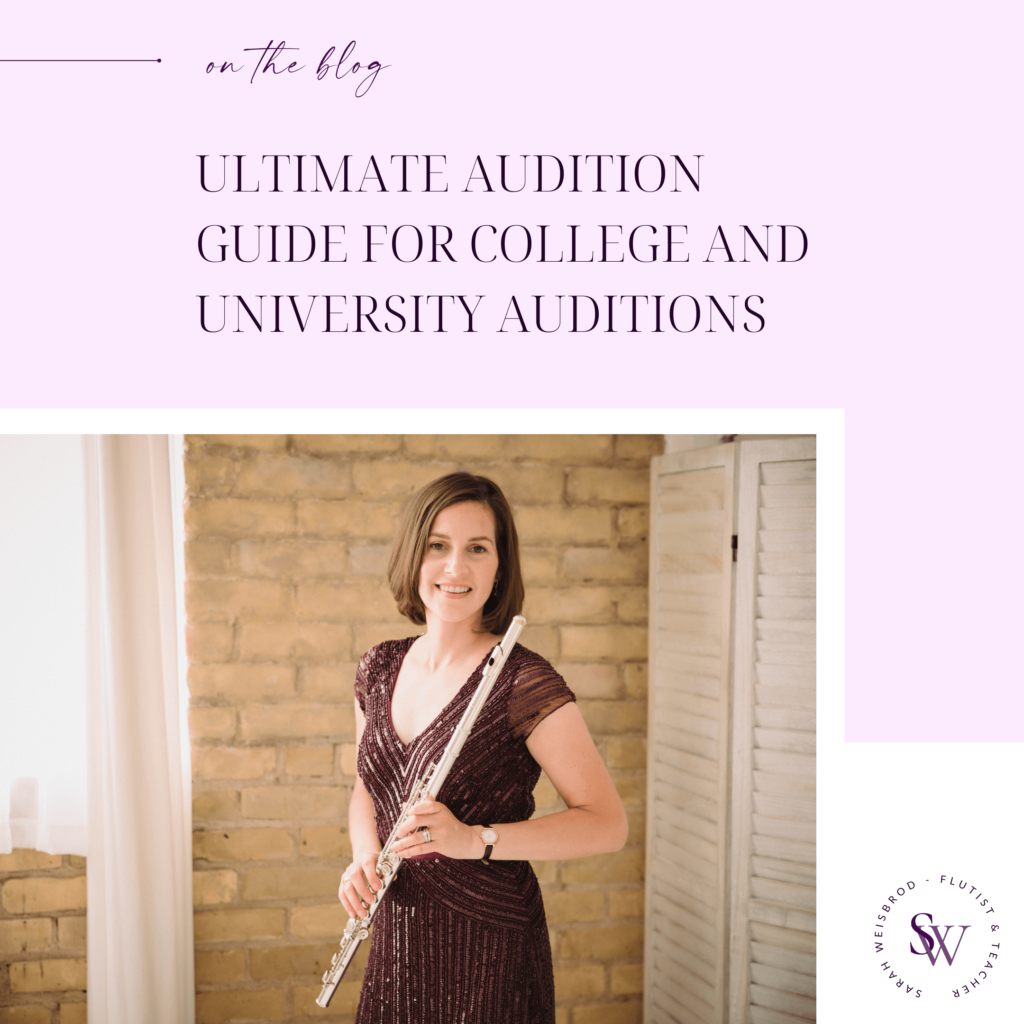
If you can plan ahead and account for any possible roadblocks, then you’ll significantly reduce your nerves and stress level as you warm-up for your audition. Because, who wants to be flustered while trying to play the opening of Prélude à l’après-midi d’un faune or Mozart’s Concerto in G?
Let’s dive into the 10 ways you can take control of your audition day and avoid feeling frazzled. Be sure to read all the way to the end so you can see how I planned my own Master’s audition day within the itinerary I was given.
Audition Tip 1: Carefully study your itinerary for the day
Your planning all starts with your itinerary. Try to memorize as much of it as possible so you know where you need to be and when. I’d recommend taking a picture of it on your phone, if it came via paper mail, so you have a copy in case you lose it.
It should go without saying, but your audition is the most important item on the itinerary. You want to ensure that anything extra on your itinerary won’t impact your ability to play at your best.
Plan everything around your audition time.
Tours and Q&A Sessions
Some schools offer Q&A’s for parents and students either before or after your audition, as well as campus tours.
My advice? Plan everything around your audition time.
If your audition time is at 10 AM, see if you can catch a later Q&A or campus tour. The last thing you want is to be sidetracked and watching the clock because you want to warm up, but your campus tour has taken you to the other side of campus. Which, by the way, can be quite a large distance if you’re at a major university.
If your audition is in the afternoon and you opt to attend a morning campus tour, make sure you don’t expend too much energy on your tour. You’re there to audition and you want to make the trip worth it.
If you can’t get a campus tour after your audition, see if you can get one the day before, if you’re planning an overnight trip.
Audition Tip No. 2: Know how much time you’re allowed for a warm-up on-site
When planning, it helps to work backward. If your audition time is at 10 AM, you want to know when you can start warming up before your audition. Some schools have first come first serve unlimited practice room time, while others set practice limitations.
When I applied to graduate school, we were only allotted a practice room for 60 minutes. Because I knew that ahead of time, I could prepare for the day’s schedule. I started doing mock audition days where I gave myself a 60 minute warm-up, followed by a 5 or 10 minute break then ran my audition.
My other trick for that day was to do a little warm-up before I left for the university. I know that on performance days, I sometimes need to spend extra time on long tones because of nerves.
If you need more time than the university allots for a warm-up and you’re staying over the night before your audition, see if your hotel will allow you to practice in your room. Sometimes even just 5 minutes can give you a good security blanket before departing for your audition.
Audition Tip No. 3: Travel ahead of time
If you can, travel to your audition city the day before. You don’t want to be stressed driving hours or worrying about a flight cancellation. Travel fees and application fees can add up, but you don’t want to miss your audition because your flight arrived late to your destination city.
If you’re driving to your audition the morning of your audition date, be sure to leave early in case there’s an accident on the way or you encounter some unexpected weather. Living in Minnesota, you can sometimes cross 3 different weather systems on a 5 hour drive.
Audition Tip No. 4: Get to your audition site early for pre-audition logistics
It’s better to arrive early to your audition and have some downtime than be hustling to park, check-in, and warm up.
Parking
You never know if parking may be an issue that day. Check the university’s calendar to see if there are any major events that may impact parking near the music building.
This leads to my other key point about parking: figure out where you’ll park.
Some universities have contract-only ramps and lots. You may have a 5 or 10 minute walk to your audition from the parking venue.
Look up a campus map and figure out where to park. The maps show you which lots are for guests, as well as the cost per hour. You can then use Google Maps’ walking feature to figure out how long it will take you to get from your parking location to the music building.
Audition Check-in & Paperwork
When you arrive at the music building, you’ll likely need to check-in and fill out some audition paperwork. This includes any school of music paperwork as well as your audition sheets for the panel.
If they don’t give you any audition sheets, ask if there’s anything else you need to fill out. If your check-in committee tells you there’s forms outside the audition room, go and get those forms now. You don’t want to be filling them out while nervous. And, you don’t want to be filling them out during your precious warm-up time.
Find your audition and warm-up rooms
After checking in, I highly recommend finding your audition room and your warm-up space. Then, time the walk from your warm-up space to your audition room.
You want to know exactly how much time you’ll need to get from A to B. You don’t feel rushed walking to your audition. so you know when you need to make your way to your audition. Plus, you don’t want to be late.
This is why it’s so important to arrive early. You don’t want to be taking care of logistics during your dedicated warm-up.
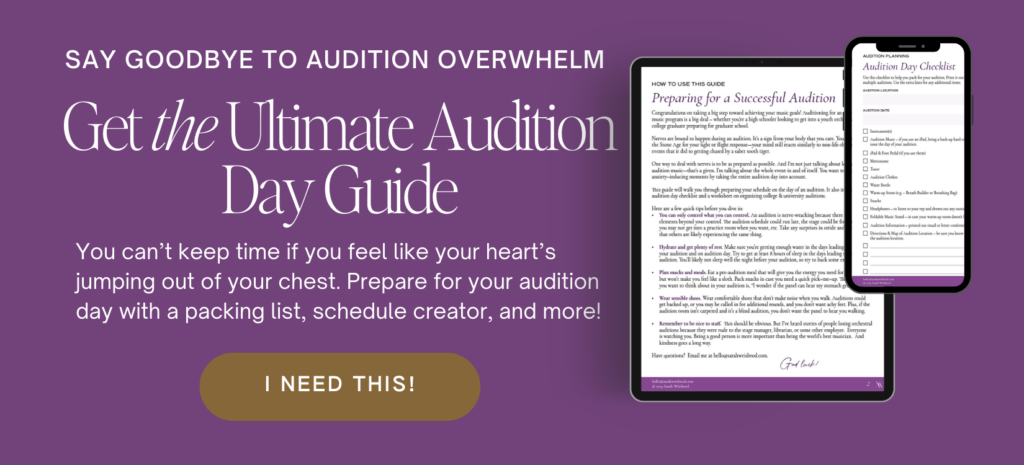
Audition Tip No. 5: Schedule a lesson
If you haven’t had a lesson with your potential new teacher, see if you can have a lesson while you’re on campus. Most flute professors offer complimentary lessons to potential new students. An in-person lesson may or may not be possible during COVID. If it isn’t, see if you can have an in-person chat with them. An online lesson at a later date is also a possibility.
Remember, you’re auditioning the school and your next flute teacher just as much as they’re auditioning you. You want to make sure that your next teacher is a great fit for you because you’ll be spending the next 2-4 years with them.
Audition Tip No. 6: Prepare repertoire that fulfills requirements for as many auditions as possible.
If you’re applying to multiple music programs, determine which pieces overlap at each audition. This way, you don’t have to prepare unique repertoire for each audition.
For example, if two auditions require 2 contrasting pieces and 3 orchestral excerpts of your choosing, you can do the same audition at both schools. If one school requires a piece from the Flute Music by French Composer compilation and the other school doesn’t specify, use the French piece in both auditions.
Related: How to Plan an Effective Practice Session
Audition Tip No. 7: Plan meals & pack snacks
Eat a pre-audition meal that will give you the energy you need for the audition but won’t make you feel like a sloth.
Plan out how you will eat that day. Make sure that you have adequate food in your system before your audition. Some people like to play on a full stomach, others can’t eat at all before a performance. Figure out what works best for you and plan your meals working backwards from your audition time.
Pack snacks in case you get unexpectedly hungry and need a quick pick-me-up. The last thing you want to think about in your audition is, “I wonder if the panel can hear my stomach grumbling.”
Audition Tip No. 8: Hydrate
Make sure you’re getting enough water in the days leading up to your audition and on the big day. And, if you drink too much water before your audition, be sure to visit the lavatory before your audition time.
Audition Tip No. 9: Get plenty of rest & sleep
When you perform, your body goes into fight-or-flight mode. And, a 10 minute audition will consume a lot of energy (hence the reason to have a good pre-audition meal). In the days leading up to your audition, try to get at least 8 hours of sleep. You’ll likely not sleep well the night before your audition so try to bank some extra hours of zzz’s.
Audition Tip No. 10: Listen to your audition repertoire
Create a playlist of your audition rep that you can listen to on your way to the university and in the days leading up to your audition. I find that listening to my favorite flutists gets me in the right mindset for playing. It creates an ideal sound in my mind before I even pick up my flute.
Check out Apple Music, YouTube, Spotify, and Amazon Music to purchase or listen to your repertoire. Another great resource is Naxos music. Many universities subscribe to the service and it has a huge library. Find a couple different performers of the same piece to listen to. This gives you some different ideas about interpretation.
Bonus Tip: How I planned for my own graduate school audition
When I decided to return to school after my initial gap year turned into a gap decade, I used all the steps outlined above.
Several weeks before my audition, I received a formal invitation via email outlining my audition date, time, and location. My invitation email also included a couple Q&A sessions as well as details on the check-in process, practice room usage, and lodging.
Don’t be afraid to ask questions, I had a couple for the audition coordinator and she answered them right away. Remember, they invited you, they want to help you.
My audition time was 11:25 AM. My invitation email explained that I would only be allotted a practice room for 1 hour on a first come first serve basis.
From my audition time, I immediately started planning backwards.
Without knowing the exact path from the practice room to the audition room, I decided that I would have to start my warm-up no later than 10:20. This gave me 5 minutes to get to my audition room.
I knew I needed to check in, plan the path from my practice room to the audition room, and fill out any paperwork. So, I decided that I should plan on getting to the school of music no later than 10:00 AM.
I was staying with family who lived about 45 minutes away from the university, and I knew I also needed to park and walk into the building. So, I allotted 55 minutes to get into the music building (45 minute drive + 5 minutes for parking + 5 minutes walking to the music building).
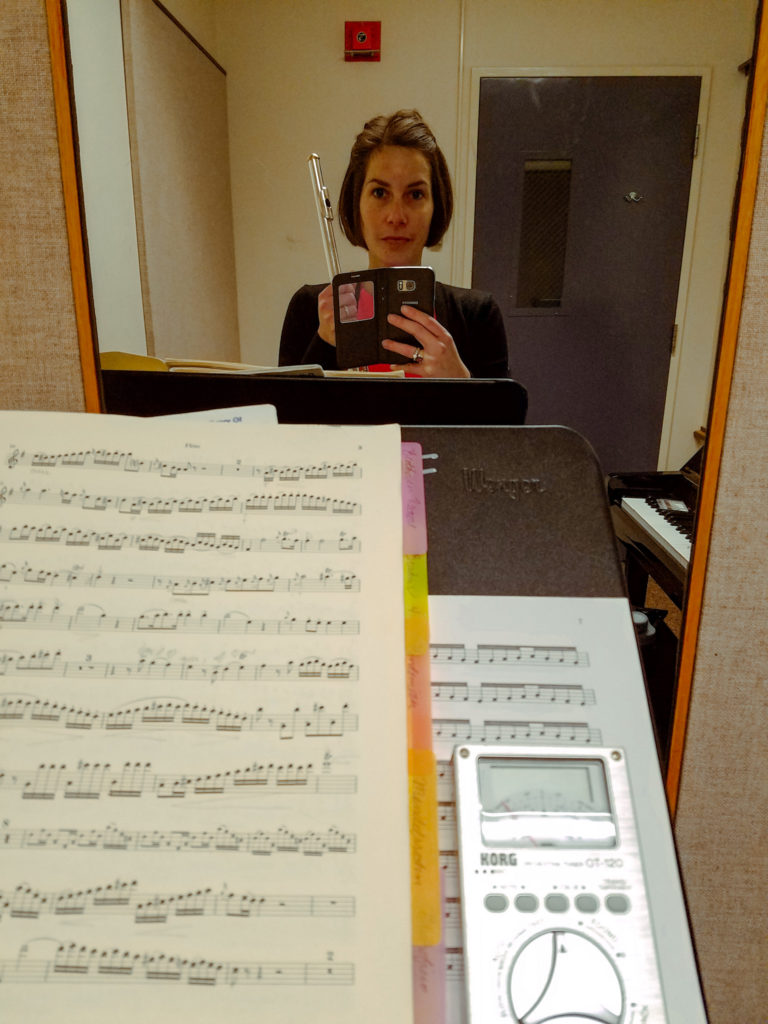
I planned my departure time for 9:00 AM. Again, I padded the time in case I ran into traffic or needed an extra bathroom break once I got to the music building. Hello, nerves.
And, because I knew I needed more than a 1 hour warm-up for a mid-morning audition, I planned to start long tones around 8:15 AM. I decided to wake up that morning around 6:30. This gave me enough time to shower, get ready, and eat breakfast before beginning my audition day routine.
You may think I’m crazy for working things out to such detail, but I cannot tell you how helpful it was to have control of my schedule. I was nervous, of course, but I felt like my planning gave me the extra energy I needed to control my nerves.
Coda: A couple extra tips
Don’t be afraid to ask for a different audition time
I have an autoimmune disease that can make it difficult to play right away in the morning. When I auditioned for grad school, I requested a late audition time. The audition coordinator was happy to schedule me last.
Thank the audition coordinator
Because I asked for an accommodation, I sent the audition coordinator a note after my audition. Those things go a long way and can make a lasting impression when the committee is deciding who to admit.
Be nice
This should be obvious. But, I’ve heard stories of people losing orchestral auditions because they were rude to the stage manager, librarian, or some other employee. Everyone is watching you. Being a good person is more important than being the world’s best flutist. And, kindness goes a long way.
I hope you found these audition tips helpful. I admit, when I first started applying and going to grad school auditions, I had no idea what I was doing. It wasn’t until I started planning the audition day that I was able to see better results.
Let me know in the comments below how you prepare for auditions or any questions you may have.
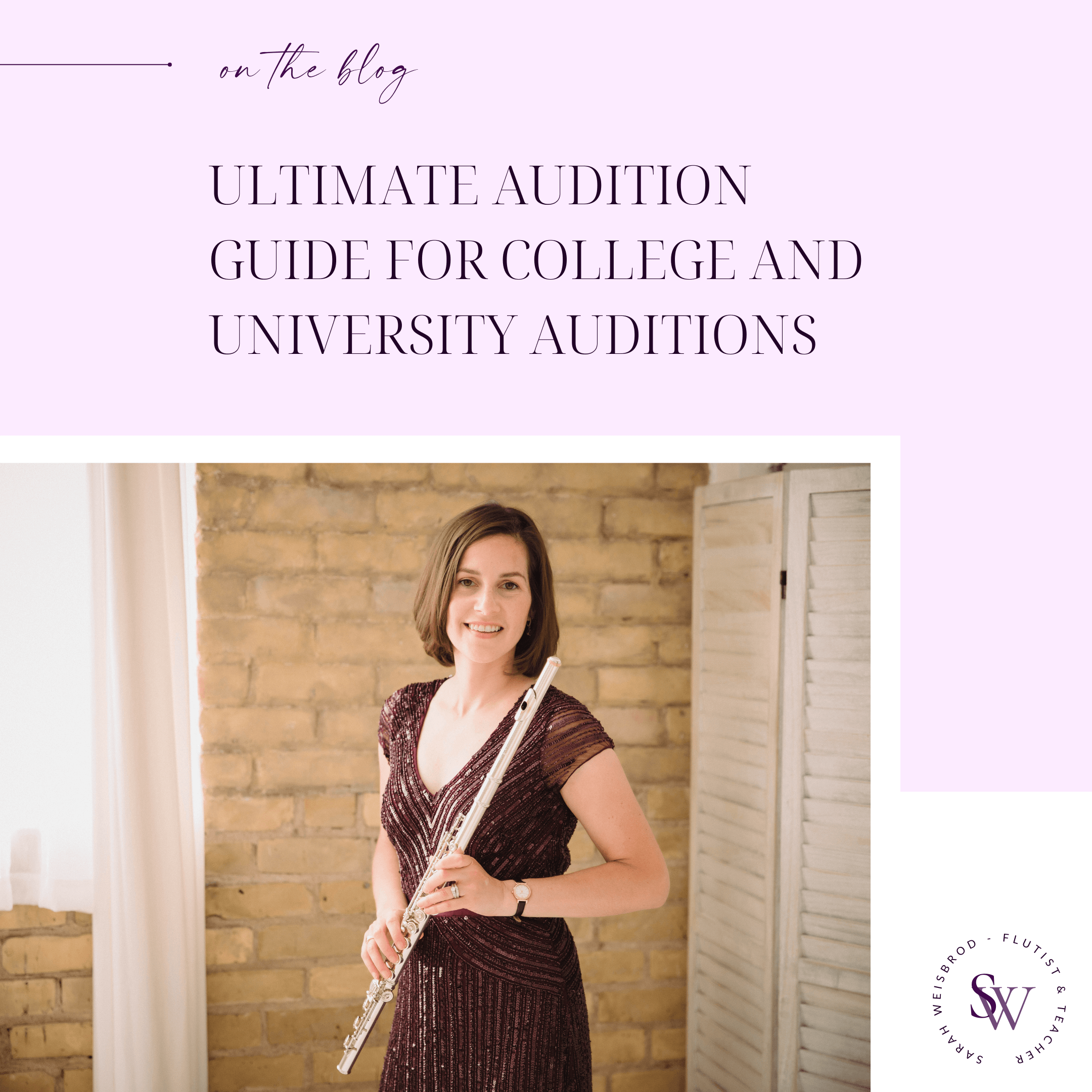
+ view the comments
Paragraph
Previous Post
Next Post
for when you're ready—
🎯 1. 60-Minute Strategy Session
Big performance, audition, or jury on the horizon? In this one-off intensive, we audit your current practice, map out a data-driven plan, and troubleshoot the spots that keep falling apart under pressure—so you walk away with a clear roadmap, not more question marks. Book your Strategy Session →
🔥 2. Practice Strategy Intensives
Ever wonder why your practice works… until it doesn’t? Inside Practice Strategy Intensives, we audit your current practice, map out a data-driven plan, and troubleshoot the spots that keep falling apart under pressure—so you walk away with a clear, sustainable roadmap that holds up under performance pressure. Learn more about Practice Strategy Intensives →
📚 3. The Practice Code for Musicians
Want a complete practice system instead of piecing tips together from Instagram? My signature course blends strategy, mindset, and artistry to show you exactly how to practice for confident, consistent performances—on stage, in the studio, and at the stand. Join the waitlist here →
✉️ 4. Stay in the loop (and in the practice room).
Not ready for a full commitment yet? Get weekly practice tips, mindset tools, and behind-the-scenes stories straight to your inbox—plus first dibs on new offers. Join the newsletter →
You deserve to have a musical toolkit that allows you to thrive. I combine my expertise as a professional flutist and software developer to give you a methodical, science-backed approach to learning even the most difficult music efficiently and effectively.
I combine it with elements of the Alexander Technique and the art of musical storytelling and interpretation to help you eliminate anxiety and perform effortlessly and with ease. Your playing matters—you have something to say, and I'm here to help you say it.
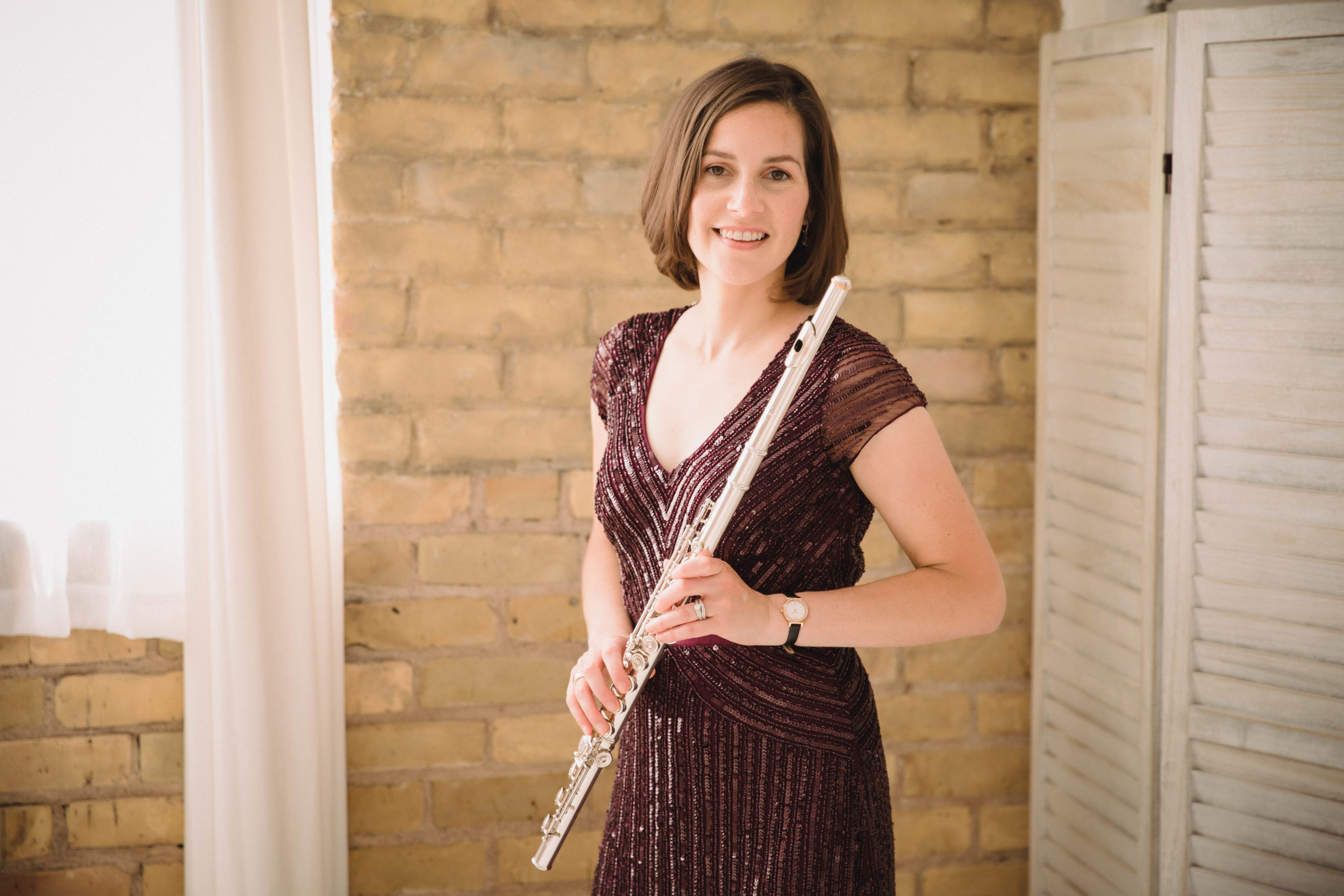
featured
Feeling inspired to practice this summer but not sure what you should be doing? I’ve totally been there before. 🙌 When I was a college student, my teacher would send me on my way at the end of each year with my new recital repertoire in hand. It was exciting, but it was also somewhat […]
GETthe COMPLETE STEP-BY-STEP GUIDE to FLUTE VIBRATO
If you're ready to achieve a natural-sounding vibrato, this is the guide for you—featuring a 5-step tutorial walking you through learning flute vibrato from scratch.
Inside you'll learn:
- How find the reaction in your sound.
- How vibrato is produced in the body.
- Why you need a flexible vibrato.
- What types of vibrato to use in your repertoire.
- How to practice vibrato.
YES, I'll TAKE THAT DOWNLOAD
hot off the digital shelf
GETthe COMPLETE STEP-BY-STEP GUIDE to FLUTE VIBRATO
MORE TO EXPLORE
My 5 Favorite Venues in Southern Tennessee
Read on the Blog
You Don't Need *This* $$$ Wedding Vendor
Read on the Blog
Let’s fix what’s not working—so you can get back to playing, teaching, and creating with confidence.
learn about flute lessons
explore coaching options
get help with your tech stack
© Sarah Weisbrod 2026. All rights reserved.
Legal | Site Credit | Photography by AMG Photography
